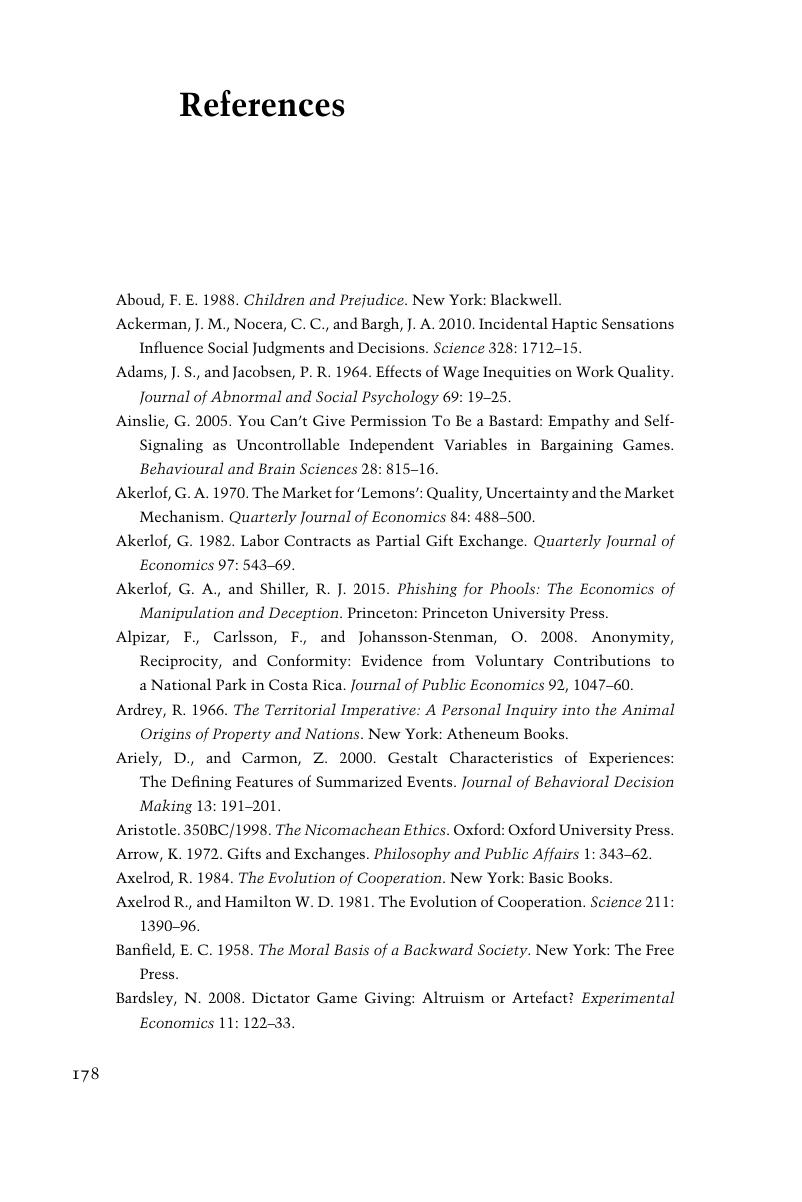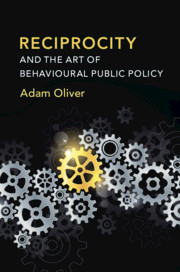Book contents
- Reciprocity and the Art of Behavioural Public Policy
- Reciprocity and the Art of Behavioural Public Policy
- Copyright page
- About the author
- Dedication
- Contents
- Figures and Tables
- Preface
- Acknowledgements
- 1 Setting the Scene
- 2 Animals and Infants
- 3 A Pinch of Anthropology
- 4 A Dash of Behavioural Economics
- 5 The Domain of Reciprocity
- 6 The Dark Side of Reciprocity
- 7 Nurturing Reciprocity in Public Policy
- 8 Reciprocity-Informed Policy Design
- 9 Towards a Political Economy of Behavioural Public Policy
- 10 Summing Up
- References
- Index
- References
References
Published online by Cambridge University Press: 06 July 2019
- Reciprocity and the Art of Behavioural Public Policy
- Reciprocity and the Art of Behavioural Public Policy
- Copyright page
- About the author
- Dedication
- Contents
- Figures and Tables
- Preface
- Acknowledgements
- 1 Setting the Scene
- 2 Animals and Infants
- 3 A Pinch of Anthropology
- 4 A Dash of Behavioural Economics
- 5 The Domain of Reciprocity
- 6 The Dark Side of Reciprocity
- 7 Nurturing Reciprocity in Public Policy
- 8 Reciprocity-Informed Policy Design
- 9 Towards a Political Economy of Behavioural Public Policy
- 10 Summing Up
- References
- Index
- References
Summary

- Type
- Chapter
- Information
- Reciprocity and the Art of Behavioural Public Policy , pp. 178 - 190Publisher: Cambridge University PressPrint publication year: 2019



